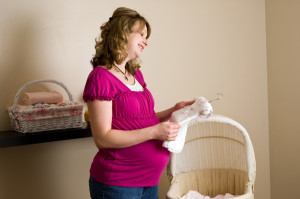 Budgeting for Baby: 13 Money-Saving Strategies
Budgeting for Baby: 13 Money-Saving Strategies
Source: http://www.webmd.com/parenting/baby/baby-gear-guide-9/baby-budget
You have almost 10 months to prepare for your little one’s arrival. Just think of all the fun things you need to buy — a stroller, cute little outfits, and toys of all shapes and sizes. In the excitement of your baby’s arrival, you may want to shower your baby with the newest and best of everything.
But before you spend a dime on baby expenses, stop and think about how you’ll budget. All those purchases will add up quickly.
Making Sense of Your Baby Dollars
Do a little investigating — how much will you be spending on your baby each month?
While your costs may vary depending on where you live, you can use these numbers as a guide.
Day care costs can run about $1,200 a month, depending on your location. When you compare the annual cost of day care vs. the after-tax salary of one parent, two kids in day care can equal about $30,000 in annual salary. Some couples decide that it’s cheaper for one parent to work part time or stay at home full-time to care for the kids.
Check with your doctor to see how many visits you can anticipate, being sure to include visits when your child is sick. Multiply that by your insurance co-pay to find out what you can expect in medical expenses.
Consider how much you’ll be spending on baby supplies each month. Diapers alone can cost you $1,500 to $2,000 in total by the time your baby is out of them.
Add up additional food costs, including any formula and baby food.
When you add everything together, paying for baby could run your family as much as $2,000 a month. So spending wisely is an absolute must.
Oh Baby, What Savings!
Cut your costs and stay in budget with a little thrift and ingenuity. You can still provide everything your new little one will need and stay within a budget by employing some strategies for thrift. Here are some to consider.
Ask about samples and coupons. Many manufacturers give hospitals samples, coupons, and freebies for new parents. Before you come home, ask the nurses or hospital staff if they have any available.
Don’t buy everything at once. Think about your immediate needs for your newborn, and purchase just what your baby will need in the first few months. For example, when your baby first comes home, he or she can sleep in a cradle or bassinet in your room. This means you can hold off on that crib purchase until your little one gets a little bigger. You also won’t need a high chair right away. Just be sure you have your car seat purchased and installed before you go to the hospital.
Buy diapers in bulk. Your cost per diaper is cheaper when you buy in bulk. And you’ll go through them so quickly the first year that buying in bulk will also save you time and gas by not having to run to the store so often to replenish them.
Breast is best for your budget. Nurse your baby if you are able. Not only is it healthy for you and your baby, it will save you money on the cost of formula.
Make your own baby food. Get a small food processor and make your own baby food from fresh fruits and veggies. It’s a lot cheaper than most baby food found in the store. Just be sure to freeze any leftovers so they don’t spoil.
Put your money where it matters. Spend your money on safety items like car seats and cribs. Manufacturers constantly update these items with the latest safety features, so it’s best to buy new.
Clip out, click on coupons. Comb through your local paper and flyers for coupons on baby supplies. You can also sign up online for coupons from your favorite manufacturers, and while you’re at it, look at online social sites just for moms. Many of them offer special deals on baby purchases that can save you money.
Think “something borrowed.” Ask friends and family with older children if they have anything they aren’t using. Most will be more than happy to pass on baby clothes and other gear. You can also borrow things like a changing table (you’ll want to buy a new pad for it), a highchair or booster seat, baby slings or backpacks, and a dresser.
Check yard sales and secondhand stores. Often you can find clothes that have been barely used and look almost new. This can be a good way to find special event clothes that your child may only wear once.
Hold off buying shoes. Yes, those tiny sneakers are cuter than words, but your little one really doesn’t need shoes until he or she learns how to walk. Footies or socks work fine to keep your infant’s feet warm.
Buy store brand and generic. Your little one won’t know any different, and it can save you a lot of money on baby supplies and formula. Baby formula is regulated by the FDA, so you can be sure that the store-brand formula has the same quality as a brand name. Formulas, though, do not all have the same mineral content. So ask your pediatrician for recommendations.
Take advantage of tax deductions. 20% to 35% of child care expenses can be deducted depending on your income. Some states offer additional benefits, so check with your tax adviser.
Tax-free is free money. Some employers offer a dependent-care account where you contribute an annual amount in pretax dollars to be used for qualifying dependent care expenses. Check with your employer to see if they offer such a program.
